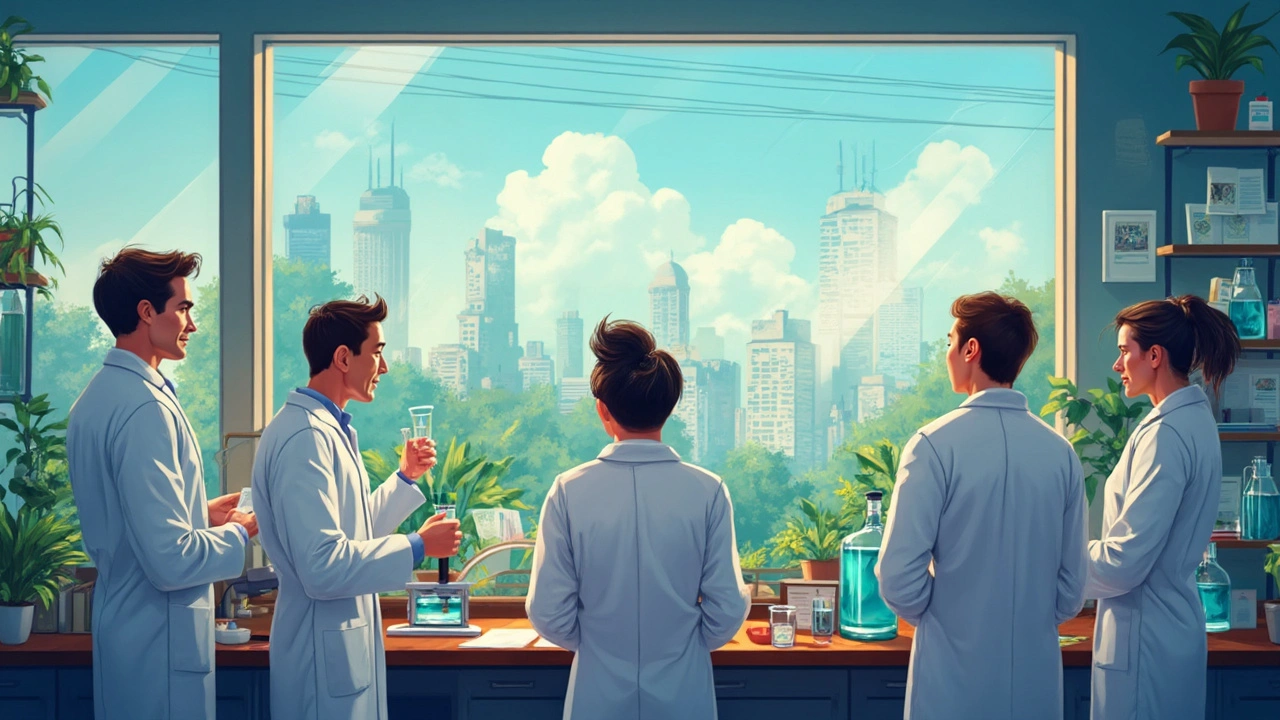
Explore how ambrisentan, a key drug for pulmonary arterial hypertension, interacts with the environment and how sustainable practices can help reduce its eco-impact.
Going green isn’t just for food and fashion—your medicines can be greener too. Below you’ll find real‑world steps to cut waste, support sustainable drug makers, and keep your health on track without harming the planet.
Pharmaceutical production uses a lot of water, energy, and chemicals. When factories dump untreated waste, rivers get polluted and wildlife suffers. Even the tiny bits of plastic in pill bottles add up, ending up in landfills or oceans. Choosing eco‑friendly options reduces that impact and helps protect the environment you live in.
Studies show that greener manufacturing can cut carbon emissions by up to 30 % compared to traditional methods. That’s a big win for anyone who cares about climate change. Plus, many patients feel better knowing their treatment isn’t adding to the problem.
Start with your doctor. Ask if a generic version of your prescription is available—generics usually require less packaging and have a smaller production footprint. Most of the posts on our site, like the guide to buying generic Ativan or doxycycline, already highlight cheaper, safer options that are often greener too.
Look for pharmacies that advertise sustainable practices. Some online stores use recyclable boxes, biodegradable blister packs, or carbon‑neutral shipping. When you see a pharmacy that lists “green packaging” or “eco‑friendly sourcing,” give them a try.
Don’t throw away unused meds in the trash. Many local pharmacies run take‑back programs that safely dispose of drugs without contaminating water supplies. If your pharmacy doesn’t offer it, check your city’s hazardous waste disposal site. Proper disposal keeps chemicals out of the environment.
Consider the dosage form. Liquid syrups often need plastic bottles, while tablets can fit in minimal blister packs. If you can switch to a tablet or capsule that offers the same effect, you’ll likely generate less plastic waste.
When buying online, compare the environmental policies of each seller. A site that lists its carbon offset program or partners with eco‑certified manufacturers is usually a safer bet. Use the detailed buying guides on our tag page to spot trusted sources.
Finally, keep an eye on expiration dates. Buying only what you need prevents leftovers that end up as waste. Set reminders on your phone to use meds before they expire, and talk to your pharmacist about splitting larger bottles into smaller, more manageable supplies.
By asking a few simple questions and choosing greener options, you can lower the environmental cost of your health routine. Small changes add up, and together they make the pharmaceutical world a cleaner place.

Explore how ambrisentan, a key drug for pulmonary arterial hypertension, interacts with the environment and how sustainable practices can help reduce its eco-impact.